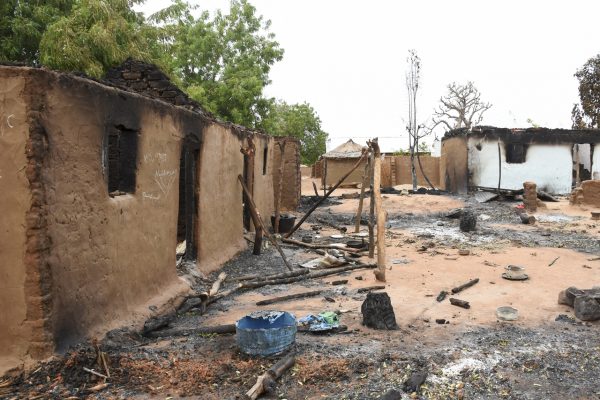Plateau, in a tragic turn of events, central Nigeria has witnessed a surge in violence perpetrated by armed groups, resulting in a devastating toll of at least 160 lives lost. This figure starkly contrasts with the initial report from the army, which had estimated only 16 casualties in a region long plagued by religious and ethnic tensions. The attacks, orchestrated by local “bandits” or military gangs, unfolded in a chillingly coordinated manner, targeting no fewer than 20 different communities.
Monday Kassah, the head of the local government in Bokkos, Plateau State, disclosed that the hostilities persisted from Saturday into the early hours of Monday, claiming the lives of 113 individuals. The assailants not only took lives but also left in their wake a trail of destruction, torching houses in their path. Kassah further revealed the grim reality of the situation, stating, “We found more than 300 wounded people,” all of whom were subsequently transferred to hospitals in Bokkos, Jos, and Barkin Ladi.
The provisional toll provided by the local Red Cross painted a somber picture, reporting 104 deaths across 18 villages in the Bokkos region alone. Additionally, reports surfaced of at least 50 casualties in several villages in the Barkin Ladi area, according to Dickson Chollom, a member of the state parliament. Condemning these attacks, Chollom urgently called upon the security forces to intervene swiftly, emphasizing the collective pursuit of justice and lasting peace in plateau.
The violence, originating in the Bokkos area, spilled over into the neighboring Barkin Ladi, resulting in 30 more lives lost, as confirmed by local chairman Danjuma Dakil. Despite the condemnation from Plateau State Governor Caleb Mutfwang, who characterized the violence as “barbaric, brutal, and unjustified,” reports on late Monday afternoon suggested that gunfire could still be heard in the region.
Markus Amorudu, a resident of Mushu village, offered a chilling firsthand account, describing how people were caught off guard while sleeping, with assailants capturing many, leading to fatalities and injuries. The unsettling nature of these events prompted Amnesty International to criticize the Nigerian authorities for their perceived failure in addressing the frequent deadly attacks on rural communities in Plateau state.
This latest episode of violence underscores the longstanding challenge of bandit militias operating in northwest and central Nigeria. These groups, based in remote forest areas, have consistently raided villages, looting and kidnapping residents for ransom. The root causes of such conflicts are multifaceted, involving competition for natural resources between nomadic herders and farmers, exacerbated by rapid population growth and climate pressures. The region, situated on the dividing line between Nigeria’s predominantly Muslim north and mainly Christian south, remains a hotspot for social tensions and violence.
It’s crucial to note that this disturbing incident adds to the complex security landscape in Nigeria, which has been grappling not only with internal strife but also a jihadist conflict in the northeast since 2009. This conflict, involving groups like Boko Haram and factions linked to the Islamic State, has resulted in tens of thousands of casualties and the displacement of around two million people.

Plateau
In the wake of these challenges, President Bola Ahmed Tinubu, elected in February amid a highly contested ballot, has pledged to attract more investment to Africa’s largest economy and most populous country. However, the persistence of security challenges, as exemplified by the recent attacks, underscores the formidable task ahead in achieving lasting stability and peace in Nigeria.










